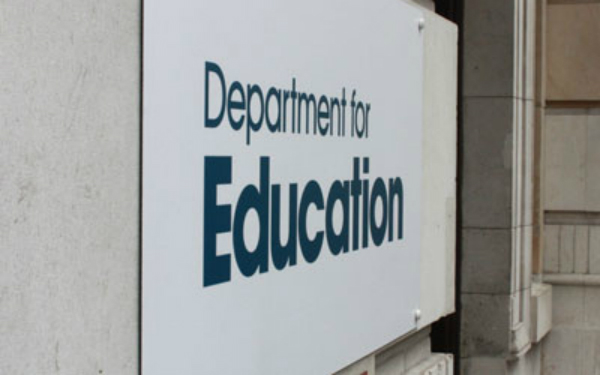
The Department for Education (DfE) is seeking bidders for a new contract to deliver the assessed and supported year in employment (ASYE) scheme for children’s social workers.
It aims to offer newly qualified social workers (NQSWs) on the scheme a more consistent experience than they do at present.
Evaluations by Skills for Care, which has the current ASYE contract, have warned of uneven delivery of the ASYE from employer to employer, and stressed that its success hinges on buy-in at all levels of organisations.
The DfE’s invitation to tender, published earlier this month, is worth £12.7m and will run from April 2022, when its contract with Skills for Care ends, for an initial two years with the option to extend for a further two.
Skills for Care’s existing agreement, worth an initial £1.6m, started on a two-year basis in 2018, with two one-year extensions taking it to 2022.
The DfE says in supporting documents for the tender that the contract’s length is flexible so it can respond to any changes resulting from the children’s social care review.
“The care review is due to complete in spring 2022 [and] expected to set future policy direction for children’s social care,” it says.
“We would like to work closely with the successful contractor(s) on how we can best respond to the recommendations.”
DfE expects the new contractor to “be the public face of the ASYE in the sector” and its responsibilities will be to:
- Develop and manage a system to administer payments to employers and associated registration and administration activity.
- Transition the current database of ASYE candidates and employers, and make payments to employers with current participants for whom payments are outstanding as at 31 March 2022.
- Establish and build relationships with the sector and effectively communicate the requirements of the ASYE programme including details of how to participate, access funding and the responsibilities of each party.
- Identify and support employers to develop, implement and share best practice, including establishing a best practice quality assurance framework for the ASYE programme for employers to quality assure their own provision, and other resources, tools and guidance that support a high-quality ASYE experience for NQSWs.
Submissions for the contract end on 1 October 2021, with work to begin 1 April 2022.
Related articles
‘Not all ASYE participants get a good experience’
The government pays employers £2,000, half initially and the rest on completion, for each of their NQSWs that participates in the ASYE.
It expects them in turn to provide regular supervision, a reduced workload to enable NQSWs to spend 10% of their time training for the scheme, and a personal development plan.
But social workers on ASYE schemes have told the DfE that the level of support they receive is variable. The department notes in its research documents: “Standards fluctuate across employers and not all ASYE participants receive a good quality ASYE experience.”
Skills for Care’s own review of the programme last year found some employers took a “hands-off” approach towards NQSWs doing the ASYE. “The risk is that NQSWs do not take their allotted time properly, which has implications for their learning and development,” it said, in reference to the 10% of their working time that staff on the ASYE are expected to have allocated to learning and development.
DfE says it “seeks to deliver consistency of the ASYE programme across England” through the new procurement.
“The programme needs to provide meaningful engagement with employers and NQSWs to continue to build on programme strengths and further the impact of improving the quality of social work practice and retention of child and family social workers from all backgrounds,” it adds.
‘At the moment, it seems more like a postcode lottery’
Rebekah Pierre, professional officer at the British Association of Social Workers (BASW), told Community Care some of her organisation’s members had reported low levels of support for their ASYE studies and a lack of variation in the types of social work role they were being trained in.
“Some local authorities provide books, social worker toolkits, learning resources, whereas others have to fund these out of their own pocket,” she said. “We really feel there should be consistency there. At the moment, it seems more like a postcode lottery.”
She said what is taught on the ASYE differed between authorities. “In inner city London, there might be more of a focus on gangs, contextual safeguarding, child sexual exploitation,” she said. “Whereas in other parts of the country, these themes or topics might not be covered at all.”
And she said that reduced caseloads and protected learning time “went out the window” in many areas when workloads increased due to staff illness or other pressures.
Pierre said all ASYE participants should have an opportunity to work in different parts of children’s services.
“When I was training we learned about the narrow areas that I was in, which was child protection and child in need, but I then had no idea how the MASH service operated or how the disability team operated or the looked-after team,” she said.
“So, I think a more integrated approach there can make sure that social workers get the bread and butter of all the different areas so they know what they are walking into.”
A recent Skills for Care review found that black and ethnic minority children’s social workers faced disproportionately high rates of failure in the ASYE. Pierre said “anti-racism needs to be properly embedded” in the programme’s delivery.
Pierre said greater funding for ASYE students that have dyslexia or require additional learning support should be offered, potentially on top of the £2,000 paid to employers.
And she said social workers should be involved in how ASYE support is designed.





 Bournemouth, Christchurch and Poole
Bournemouth, Christchurch and Poole  Hampshire County Council
Hampshire County Council  Lincolnshire County Council
Lincolnshire County Council  Norfolk County Council
Norfolk County Council  Northamptonshire Children’s Trust
Northamptonshire Children’s Trust  South Gloucestershire Council
South Gloucestershire Council  Wiltshire Council
Wiltshire Council  Wokingham Borough Council
Wokingham Borough Council  Children and young people with SEND are ‘valued and prioritised’ in Wiltshire, find inspectors
Children and young people with SEND are ‘valued and prioritised’ in Wiltshire, find inspectors  How specialist refugee teams benefit young people and social workers
How specialist refugee teams benefit young people and social workers  Podcast: returning to social work after becoming a first-time parent
Podcast: returning to social work after becoming a first-time parent  Podcast: would you work for an inadequate-rated service?
Podcast: would you work for an inadequate-rated service?  Family help: one local authority’s experience of the model
Family help: one local authority’s experience of the model  Workforce Insights – showcasing a selection of the sector’s top recruiters
Workforce Insights – showcasing a selection of the sector’s top recruiters 

 Facebook
Facebook X
X LinkedIn
LinkedIn Instagram
Instagram
Can we please stop this right now? This and NAAS. Properly resourced LAs and supported staff and managers will enable better support, this programme is a bandaid over a much bigger problem. Although many authorities have managed to provide a supportive and developmental year for their NQs. Can we focus on the real.problens please?!
(I was supporting NQs when ASYE was first introduced and lead by CWDC. We got a whopping £10,000 per NQ!! That well went dry! But they produced excellent handbooks for ASYE and the 2nd year. Where are those valuable resources now?)